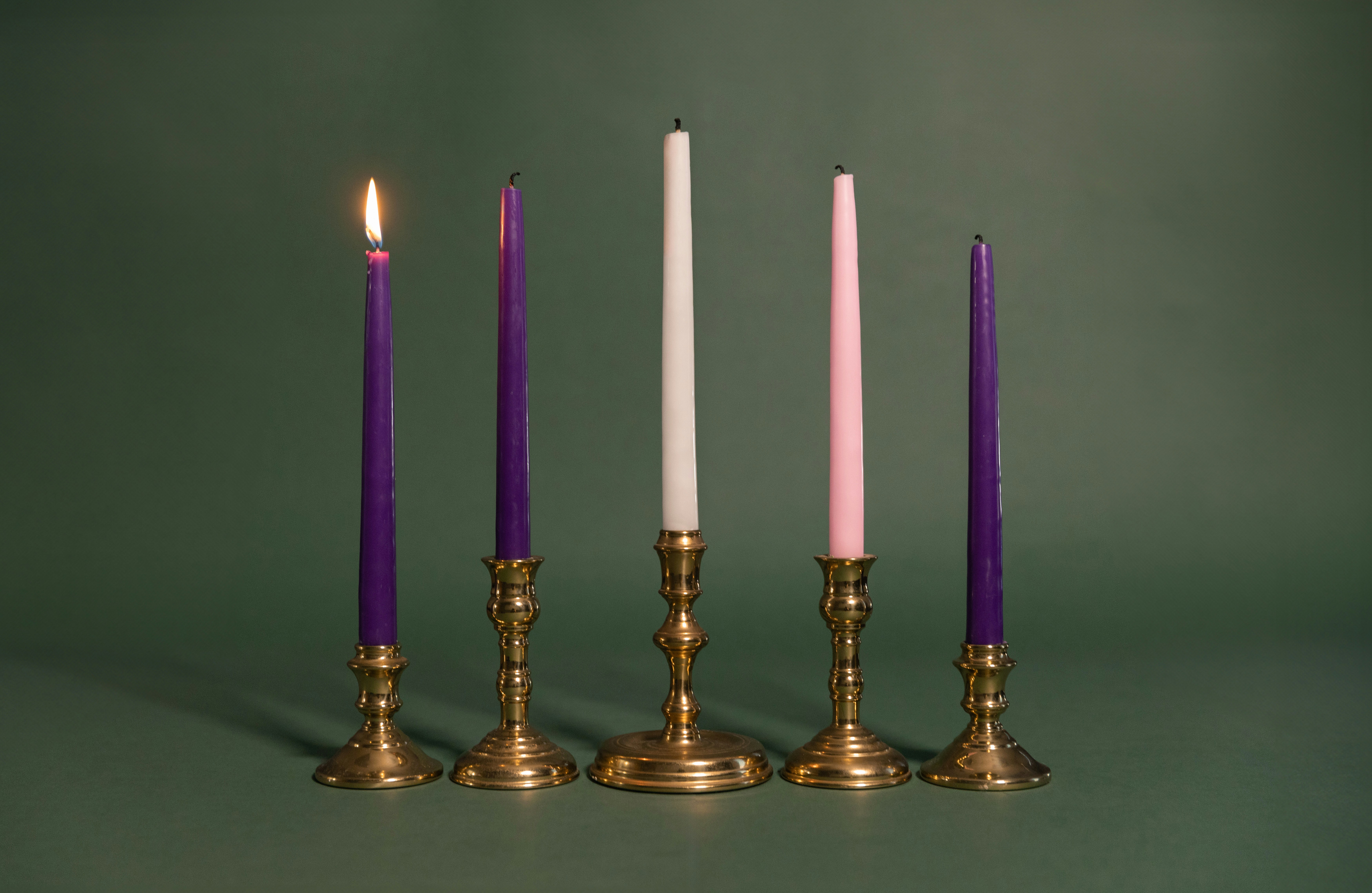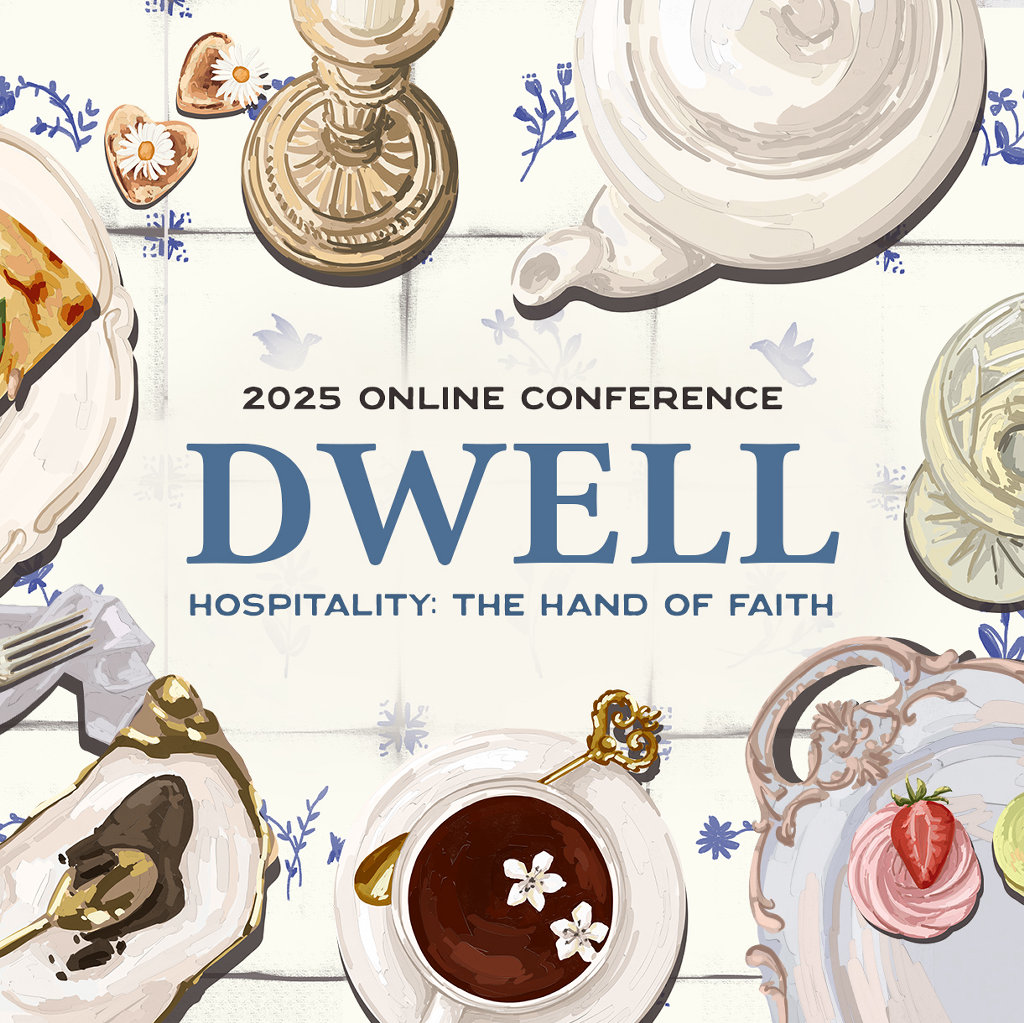No products in the cart.
How Then Shall We Wait?

When I was a child, Christmas was magical. I eagerly awaited the day after Thanksgiving when my parents would remove our artificial tree from its waxy box and our home would shine with colored lights. When Christmas came, we would journey from North Carolina to my mother’s hometown in central Florida. The glow of white lights against cascading Spanish moss in the live oak trees had a celestial beauty, and the crowded rooms seemed the antidote to loneliness. I played cards and drank eggnog and never saw the quiet battle lines drawn throughout the house. I only saw magic.
I grew up, and the seams began to show. Christmas became a quest to achieve a feeling of family togetherness. What seemed a holy desire was in truth a grasping to compensate for the shadows of the rest of the year. The thing about grasping, though, is that it never works. The holidays were not meant to hold the weight of our straining to build a pale paradise on earth, and, eventually, I began to await with dread the coming celebration of Christ’s birth. Yet on the dawn of a new liturgical year, I wait in anticipation because I know that with Advent, I will enter a season of quiet and contemplation. In Advent, I can exhale. Yes, really. In December.
When I stumbled upon the liturgical calendar many years ago studying medieval Rus literature, I felt cheated. I spent all my life in the church – why had this beautiful treasure been withheld from me? It was like finding an uncut gem, of little beauty or worth but for drilling away the rough. And so began my decades-long excavation of Christian time. The church calendar is not ordered by the rhythms of the school year, retail cycle, or sports seasons. Instead, it is ordered by the story of salvation through the life of Christ and his church. Corresponding to a unique part of Christ’s life and ministry, each season has its beauty and discipline.
As with other liturgical seasons, I thought Advent was primarily about distinct traditions, and “keeping Advent” meant seasonal devotionals, Advent wreaths, and Jesse trees. What I didn’t understand was that the Christian year is not primarily about trading out traditions but about a whole new order. “So teach us to number our days, that we may apply our hearts to wisdom,” the Psalmist writes. Our days have a pattern, but it is often a passive one. It is the nature of culture to be invisible. We do things as they have usually been done. It is not until we hold this up in light of the seasons of Christian discipline that an order, a pattern is revealed. What you will do with what you find is the question.
For me, Advent required the most sacrifice and the most change. It was the opposite of what I had always done. As I began to peel back layers of practices, it gradually revealed the order of my affections and their clash with the order of Christian time. Advent is penitential, a time of fasting, contemplation, and quiet, preparing the heart to receive the Incarnation. Advent is about waiting, waiting for the right thing in the right way. Advent traditions should serve the waiting; if they become just a more spiritual way to bustle about, they entirely miss the point.
Waiting is hard. It hurts. The space of the already, not yet, seems empty. Waiting is too quiet, too still. How then shall we wait? We wait as the saints have waited since the beginning of time. We wait with faith because we desire a better country. We wait with hope because He will not tarry. We wait with sorrow because the world is not as it was meant to be. We wait with joy, because we, too, desire the better part. We wait as the God-bearer waited: I am your handmaiden. Be it unto me according to your word.
When this is the standard, time and traditions become a bit easier to sort out. Should I order my soul with music that idolizes familial bliss? Should I spend a penitential and contemplative season in line clutching a latte? Should I flood my moments with parties and concerts and festivals and events? Should I fill every corner of my home with decorations? Should I eat and drink and make merry for tomorrow I will die?
There was another woman who wouldn’t wait. She wanted to fill her soul and her stomach. The better country was not worth waiting for. The likeness that she was given was not enough. She seized and grasped, and in her grasping, the knot was tied. And yet, the knot was untied by one who would wait; which will be my pattern? Eve, who bound by unbelief, or Mary, who loosened by faith?
One day, the waiting will end. There will be no Advent, only an eternity of Christ’s mass no longer mediated through bread and wine. He will be among us, and we shall be his people. On that day I hope that I, with another who waited, will say,
Lord, now let your servant depart in peace, according to your word. For my eyes have seen your salvation, which you have prepared before the face of all people; to be a light to lighten the Gentiles, and to be the glory of your people Israel. Glory be to the Father, and to the Son, and to the Holy Spirit, as it was in the beginning, is now, and ever shall be, world without end. Amen.
Rachel Woodham
Rachel Woodham has a BA in Russian Language and Literature and is a graduate student of Great Books at Harrison Middleton University. A classical educator for the last decade, she now homeschools her three all-time favorite students.








